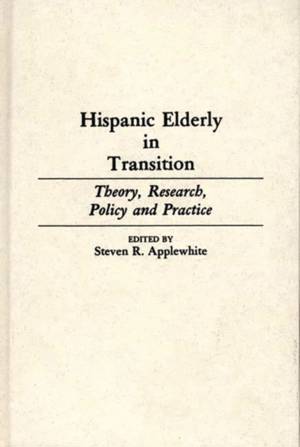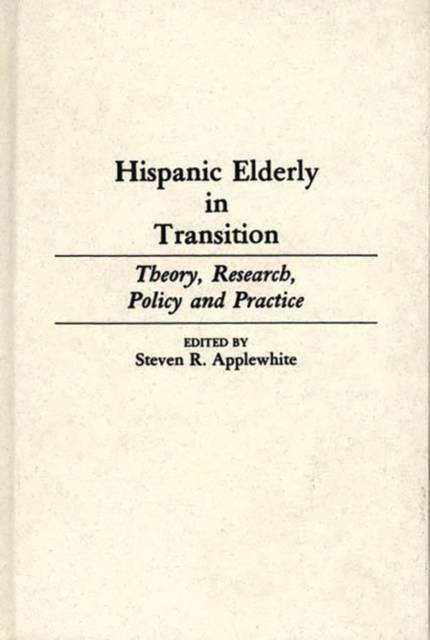
- Retrait gratuit dans votre magasin Club
- 7.000.000 titres dans notre catalogue
- Payer en toute sécurité
- Toujours un magasin près de chez vous
- Retrait gratuit dans votre magasin Club
- 7.000.0000 titres dans notre catalogue
- Payer en toute sécurité
- Toujours un magasin près de chez vous
Description
An outstanding examination of the cross-cultural apsects in social work practice and service dealing with Hispanic elderly, in particular Puerto Ricans, Cubans, and Mexicans. It provides a historical as well as a sociodemographic overview of the Hispanic aged, and addresses economic, cultural, and health issues affecting their quality of life. This is certainly a notable and comprehensive study of service utilization, variations in aging, politics and public policy, and foremost a collection of research writings of ethnography of Hispanic aging patterns and variabilities. Most highly recommended for public and academic libraries and for class use. LA Red/The Net
A notable contribution to the literature dealing with ethnic variations in aging, this volume of interrelated original essays looks at how Hispanic elderly living in the United States are adapting to the present, maintaining links to the past, and determining the roles they may have in shaping the future. Addressing economic, social, cultural, and health issues that affect the quality of life of older Mexicans, Puerto Ricans, Cubans, and other Hispanics, the book offers both comprehensive analyses of selected topics and descriptive case studies of community life together with theoretical paradigms and practice models in the field of minority aging.Spécifications
Parties prenantes
- Auteur(s) :
- Editeur:
Contenu
- Nombre de pages :
- 252
- Langue:
- Anglais
- Collection :
Caractéristiques
- EAN:
- 9780313244780
- Date de parution :
- 17-10-88
- Format:
- Livre relié
- Format numérique:
- Genaaid
- Dimensions :
- 159 mm x 236 mm
- Poids :
- 462 g

Les avis
Nous publions uniquement les avis qui respectent les conditions requises. Consultez nos conditions pour les avis.






